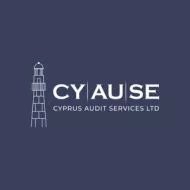- in United States
- with readers working within the Media & Information and Securities & Investment industries
- within Wealth Management, International Law and Immigration topic(s)
Cyprus Investment Firms
This article should be read in conjunction with the article "Cyprus Investment Firms - Changes to Capital Requirements and Reporting".
Following the new CRR it is evident that most Cyprus CIF (Cyprus Investment Firm) companies will fall under the definition of Class 2 investment firms.
This implies that they will continue to submit their quarterly CORREP reports every quarter like in the past.
COREP PERIODS
- March , June, September, and
- December unaudited + December audited results
Class 2 CIFs will continue to submit their quaerterly reports but this time without taking into consideration the calculation of credit risks.
Indeed ESMA has changed the way the capital requirements for investment firms is calculated in order to take into account off balance sheet positions instead of focussing 100% on, on balance sheet positions as investment firms unlike banks do not take large deposits or have large portfolios of retail and corporate loans. Consequently the new CRR requirements is a better suited combination of income statement and balance sheet risks captured by the K - Factors.
Read more about the reasoning of changes here.
So what has really changed for Class 2 Cyprus Investment Firms?
What did change is the replacement of Credit Risk with the K Factors; i.e focus on off balance sheet instead of balance sheet items.
What are these K Factors
These K factors take into consideration clients funds held off balance sheet, client orders, daily money held, hence representing a more accurate and realistic interpretation of the capital requirements needed by the CIFs.
Important Point:
The CIFs need to make sure they have incorporated the appropriate systems and controls to extract the below information in an accurate and efficient manner on a daily basis. The CIF will have to demonstrate to the regulator that it has the capacity to extract these figures on a daily basis and can demonstrate how it came up with previous figures used in the CREP reports.
More details about the K - Factors below
The below K factors aim to capture the risks the investment firm poses to itself, its liquidity and its clients;
- Risk to Client: How can the investment firm harm its clients
- Risk to Market: How big the investment firms' exposure is based on its positions
- Risk to Firm: Captures counterparty risk and trading operational risks
To be able to complete the new COREP forms and the K factors the investment firms will need to be able to generate automatically (not a strict requirement) the below information and apply it if applicable to their business:
- Total monthly assets under management
- Total daily client money held – Segregated and non segregated
- Assets safeguarded and administered
- Total daily client orders handled - Cash value
- Total daily client orders handled - Derivatives
- Clearing Margin given - CMG additional detail
- Daily trading flow - cash trades
- Daily trading flow - derivative trades
- Five, if available counterparties or group of connected counterparties where the largest amount of client money are held
- Five, if available counterparties or group of connected counterparties where the largest amount of securities are held
- Five, if available counterparties or group of connected counterparties where the largest amount of firms own cash are deposited held
- Five, if available counterparties or group of connected counterparties where the largest amount of firms' earnings is derived
- Five, if available, largest trading books exposures
- Five, if available, largest non-trading books exposures calculated including assets not recorded in the book
Other Changes
-
ICAAP will be called ICARA
The ICAAP (Internal Capital Adequacy Assessment Process) will also need to change, now it is called ICARA and needs to take into consideration interrelations of clients orders, clients funds, daily order flow which replace credit risk. Hence for those preparing the actual ICAAP this is a major change as the entire ICAAP and stress testing scenarios will need to be redesigned based on operational risk, market risk and K Factors instead of operational risk, market and credit risks.
-
Forms submitted to CySEC
Forms 061,Form 082 and Form 082 are now replaced by Form 165-01 too as per below instructions:
|
Form 165-01 |
XX_yyyymmdd_FORM165-01 (XX= CIF's TRS Code) |
XX_yyyymmdd_FRMX165-01 |
-
Deadlines
The deadlines do not change remain the same as before:
|
Class 2 |
Form 165-01 'Reporting for class 2' |
Quarterly |
31 March (Q1) 30 June (Q2) 31 December (Q4) |
12 May (Q1) 11 Aug. (Q2) 11 Nov. (Q3) 11 Feb. (Q4) |
-
Electronic Submissions to CySEC
Electronic submissions will continue to take place through CySEC's portal.
They should not be digitally signed before the submission
All email communication with CySEC must include, in the subject, the CIF's full name and its TRS's username.
All submissions must include the following forms / documentation:
- Form 165-01
- Solo Trial balance or Consolidated Trial balance*
- Solo Balance sheet or Consolidated Balance sheet*
- Solo Profit and Loss a/c or Consolidated Profit and Loss a/c*
About Us
CYAUSE Audit Services has extensive experience in the insurance industry has helped tens of insurance brokers and agents register and get licensed by the local Cyprus regulator granting them passporting access to the rest of the European Union.
CYAUSE Audit Services is an Audit & Assurance firm with offices in Cyprus and the UAE. During 2015 we have been awarded by I.C.P.A.C and the A.C.C.A (local and international association of Chartered Certified Accountants) for the Quality of our Audit Services and our Office's Procedures.
Being a Truly International Audit & Assurance firm, we have associates from all over the world and we are constantly looking for new associates to expand our network further. At present, CYAUSE Audit Services operates internationally through its membership with BKR International amongst the largest American associations in the world, Accace Circle, a co-created business community of like-minded BPO providers and advisors who deliver outstanding services with elevated customer experience. Our network covers almost 40 jurisdictions with over 2,000 professionals, it supports more than 10,000 customers, mostly mid-size and international Fortune 500 companies from various sectors, and processes at least 170,000 payslips globally.
CYAUSE Audit Services Ltd is also a member of BKR International one of the biggest US Accounting Associations of the word and the 3E Accounting Network, an international accounting network which originates from Hong Kong and has more than 80 members from all over the world.
Learn More about Cyprus Corporate Environment
Information about CYAUSE Audit Services and the Cyprus Corporate & Tax System can be obtained from our Website or our YouTube channel which provides valuable information about the Corporate & Tax Environment of Cyprus.
The content of this article is intended to provide a general guide to the subject matter. Specialist advice should be sought about your specific circumstances.


